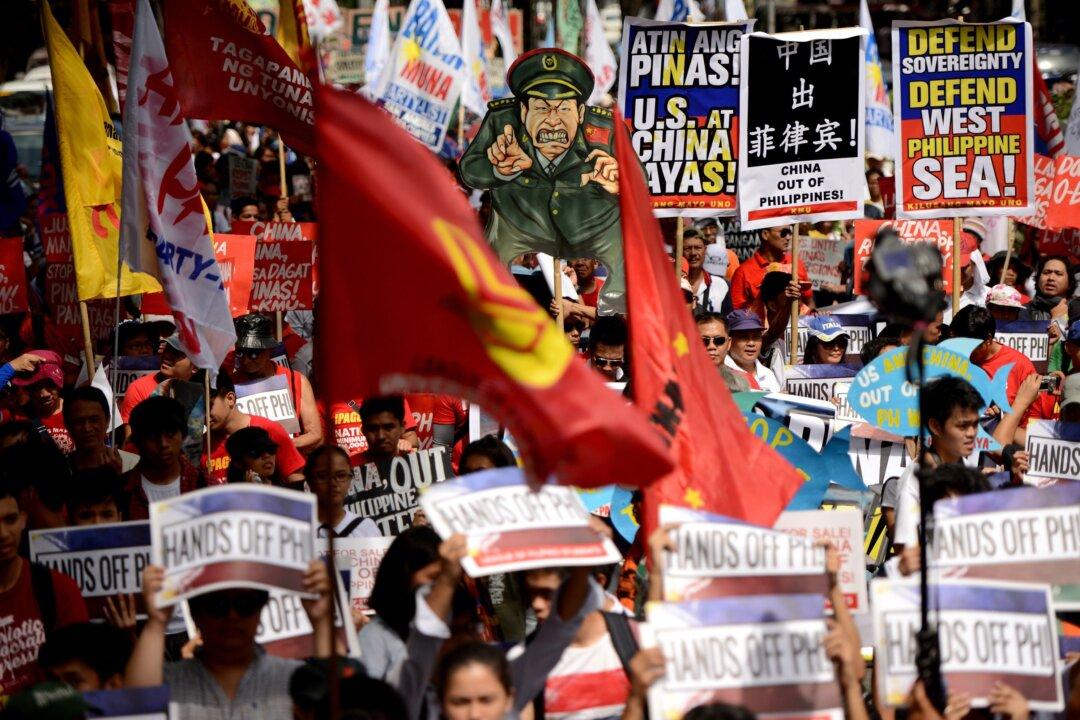In its latest response to the Chinese regime’s growing aggression, the United States seems to have learned that the pen is mightier than the sword.
The People’s Liberation Army has been building new territory in the South China Sea, close to 1,300 miles from its mainland, complete with airstrips and artillery.
China’s neighbors—including the Philippines, Malaysia, and Vietnam—have been calling on the United States to push back, but previous efforts have made little difference.
Then, on May 20, the Pentagon tried something new. It flew a P-8A Poseidon surveillance plane over three South China Sea reefs, where the PLA is building new islands, and brought a CNN reporter along for the ride.
A congressional review of the new practice of “naming and shaming” shows U.S. leaders are pleased with the results.





